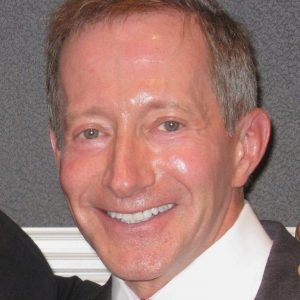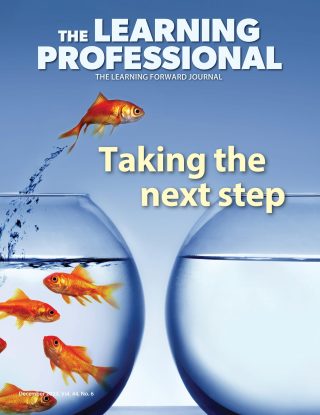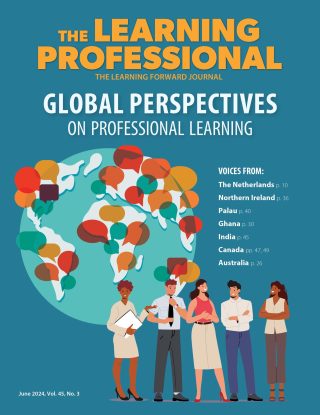FOCUS
Where do you want to get to?
Effective professional learning begins with a clear destination in mind
By Thomas R. Guskey
April 2017
Vol. 38 No. 2
Read the remaining content with membership access. Join or log in below to continue.
Sed ut perspiciatis unde omnis iste natus error sit voluptatem accusantium doloremque laudantium, totam rem aperiam, eaque ipsa quae ab illo inventore veritatis et quasi architecto beatae vitae dicta sunt explicabo. Nemo enim ipsam voluptatem quia voluptas sit aspernatur aut odit aut fugit, sed quia consequuntur magni dolores eos qui ratione voluptatem sequi nesciunt. Neque porro quisquam est, qui dolorem ipsum quia dolor sit amet, consectetur, adipisci velit, sed quia non numquam eius modi tempora incidunt ut labore et dolore magnam aliquam quaerat voluptatem.
Thomas R. Guskey (guskey@uky.edu) is a professor of educational psychology at the University of Kentucky.
References
Ainsworth, L. & Viegut, D. (2006). Common formative assessments: How to connect standards-based instruction and assessment. Thousand Oaks, CA: Corwin Press.
Brennan, R.T., Kim, J., Wenz-Gross, M., & Siperstein, G.N. (2001). The relative equitability of high-stakes testing versus teacher-assigned grades: An analysis of the Massachusetts Comprehensive Assessment System (MCAS). Harvard Educational Review, 71(2), 173-216.
Covey, S.R. (2004). The seven habits of highly effective people. New York, NY: Free Press.
DuFour, R. (2004). What is a professional learning community? Educational Leadership, 61(8), 6-11.
Epstein, J.L. & Associates (2009). School, family, and community partnerships: Your handbook for action (3rd ed.). Thousand Oaks, CA: Corwin Press.
Guskey, T.R. (2000). Evaluating professional development. Thousand Oaks, CA: Corwin Press.
Guskey, T.R. (2001a). The backward approach. Journal of Staff Development, 22(3), 60.
Guskey, T.R. (2001b). Backward planning: An outcomes-based strategy for professional development. Curriculum in Context, 28(2), 18-20.
Guskey, T.R. (2002a). Does it make a difference? Evaluating professional development. Educational Leadership, 59(6), 45-51.
Guskey, T.R. (2002b). Professional development and teacher change. Teachers and Teaching: Theory and Practice, 8(3/4), 381-391.
Guskey, T.R. (2004). Organize principal support for professional development. JSD, 25(3), 8.
Guskey, T.R. (2005a). Five key concepts kick off the process: Professional development provides the power to implement standards. JSD, 26(1), 36-40.
Guskey, T.R. (2005b). Taking a second look at accountability. JSD, 26(1), 10-18.
Guskey, T.R. (2007a). Multiple sources of evidence: An analysis of stakeholders’ perceptions of various indicators of student learning. Educational Measurement: Issues and Practice, 26(1), 19-27.
Guskey, T.R. (2007b). Leadership in the age of accountability. Educational Horizons, 86(1), 29-34
Guskey, T.R. (2012). The rules of evidence. JSD, 33(4), 40-43.
Guskey, T.R. (2014a). Evaluating professional learning. In S. Billett, C. Harteis, & H. Gruber (Eds.), International handbook on research in professional and practice-based learning (pp. 1215-1235). New York, NY: Springer International.
Guskey, T.R. (2014b). Measuring the effectiveness of educators’ professional development. In K.L. Bauserman & L. Martin (Eds.), Handbook of professional development in education: Successful models and practices, PK-12. New York, NY: Guilford Press.
Guskey, T.R. & Bailey, J.M. (2001). Developing grading and reporting systems for student learning. Thousand Oaks, CA: Corwin Press.
Guskey, T.R. & Bailey, J.M. (2010). Developing standards-based report cards. Thousand Oaks, CA: Corwin Press.
Guskey, T.R. & Jung, L.A. (2013). Answers to essential questions about standards, assessments, grading, and reporting. Thousand Oaks, CA: Corwin Press.
Guskey, T.R., Roy, P., & von Frank, V. (2014). Reaching the highest standard in professional learning: Data. Thousand Oaks, CA: Corwin Press & Learning Forward.
Learning Forward. (2011). Standards for Professional Learning. Oxford, OH: Author.

Thomas Guskey is a professor emeritus in the College of Education at the University of Kentucky, whose work is dedicated to helping teachers and school leaders use quality educational research to help all of their students learn. The author/ editor of 25 books and more than 250 articles and book chapters, he is an expert on educational measurement, evaluation, professional learning, assessment, and grading. His five-level framework of professional learning evaluation is a seminal resource in the field. His latest article for The Learning Professional, Learning Forward’s journal, is “Look beyond the satisfaction survey: A framework to evaluate results of professional learning.”
Recent Issues
WHERE TECHNOLOGY CAN TAKE US
April 2024
Technology is both a topic and a tool for professional learning. This...
EVALUATING PROFESSIONAL LEARNING
February 2024
How do you know your professional learning is working? This issue digs...
TAKING THE NEXT STEP
December 2023
Professional learning can open up new roles and challenges and help...
REACHING ALL LEARNERS
October 2023
Both special education and general education teachers need support to help...










